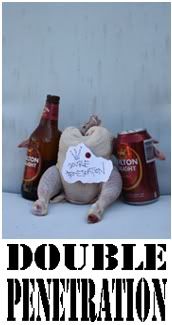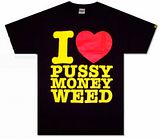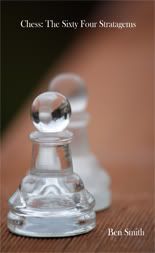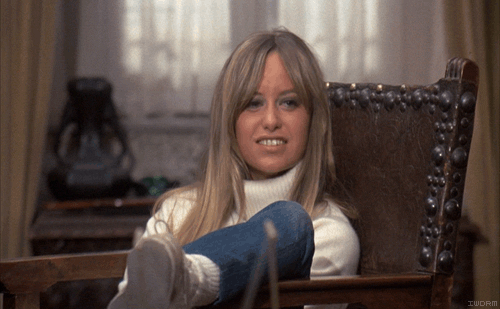Six MIFF Docos that Will Leave You Thinking for Days
Here are the best documentaries at the Melbourne International Film Festival (MIFF) – along with some conversation starters to go with your post-film bottle of wine.
Tickled
Would you ever compete in this extreme endurance sport?
When journalist David Farrier first heard about the world of competitive tickling he thought it would make for an interesting investigation. But as he started to look into it he received pushback and legal threats from his subjects, and things began to look less fun and more sinister.
“It’s a great piece of investigative journalism and a legitimately stranger-than-fiction story,” says MIFF programmer Al Cossar. “He exposes the dark, seedy underworld of the competitive-tickling circuit and the shadowy, sociopathic figure that lurks behind it.”
Tickled has also provoked controversy off screen. Police were called to Sundance after some of the film's subjects reportedly crashed the premiere with a hidden recording device. "The filmmaker himself was served papers at the True/False Film Festival, and there was another confrontation in Los Angeles about a month ago”, Cossar says.
The Lovers and the Despot
The West has long struggled with how to categorise North Korea. Is it a joke (see Seth Rogen’s farcical The Interview), or a legitimate threat? How does this film shape your impression of it?
If The Lovers and the Despot were fiction, and not fact, you’d probably scoff at how unbelievable the plot is.
Filmmaking couple Shin Sang-ok and Choi Eun-hee were kidnapped from South Korea and emerged years later in North Korea, pumping out films at the behest of Kim Jong Il. As they gained the leader’s trust through their work, they began plotting their escape.
“It’s one of those incredibly infamous, notorious episodes in the history of cinema,” says Cossar. “The recordings [ Shin Sang-ok and Choi Eun-hee] made of their personal conversations with Kim Jong Il, which make up a good portion of the archival material in the film, are just astonishing. As a portrait of 20th-century cinema history it’s a uniquely singular perspective in terms of the dynamic inside that country.”
Newtown
What happens to a small town after an unthinkable tragedy?
Newtown follows the aftermath of the shooting at Sandy Hook Elementary School in Newtown, Connecticut in December 2012. The film takes a highly personal approach; filmmaker Kim A. Snyder shows the way the tragedy changed the day-to-day lives of the victims’ families.
“It looks at a community trying to rebuild itself and come to terms with the unimaginable shock of one of the deadliest massacres in US history,” says Cossar. “It’s a devastating film, as you’d expect it to be, but it also has a degree of hope in it. It really speaks to people’s interest in understanding these situations that are ongoing. The film gives personal context to a community of people trying to understand something that will never make sense. It’s very elegantly made.”
Filmmaker Kim A. Snyder will attend as a guest of the festival.
Peter and the Farm
Why do we relate to this charismatic loner “trapped on a farm”?
US Marine-turned-farmer, Peter, has a love-hate relationship with the rural existence he feels he is trapped in. While this film is a character documentary about an unusual and charismatic man, the themes explored are almost universal.
“It’s a film that doesn’t shy away from showing the reality of his rural existence,” says Cossar. “He’s an amazing subject for a documentary … willing to unpack and unfurl himself on camera,” which is rare, according to Cossar.
The film is beautiful in the way it follows the seasons, “but it also has no sentiment about it,” says Cossar. “It’s very brusque. It’s hilarious, but also sad and melancholic. You get pushed and pulled in this movie in terms of how you relate to the character and his circumstances.”
Starless Dreams
How can you find hope in seemingly hopeless situations, such as living in an Iranian women’s juvenile detention facility?
Documentarian Mehrdad Oskouei takes viewers inside a high-security correction centre in Iran to examine the female experience of law and order in Iran.
Cossar says its brilliance comes from the powerful first-hand testimonies given by the inmates. “It features pre-pubescent-through-to-adolescent girls and [lets] them speak … hearing all of their circumstances,” says Cossar. The girls’ offences range from misdemeanours through to murder. “These girls are trapped inside a very repressive and patriarchal system,” says Cossar. “It’s a fascinating and open-book look at the circumstances of these young women.”
Louis Theroux: My Scientology Movie
Is it possible to make an honest movie about the Church of Scientology if it doesn’t really want you to?
This is a film about the difficulties of making a film about the Church of Scientology by the highly sceptical Louis Theroux.
“He’s a serious-minded chronicler of some very eccentric situations, some very fringe, tragic and terrible situations,” says Cossar. “I feel like he’s very well placed to capture the ideology and some of the egos that surround the Church of Scientology and its teachings. “Everything he uncovers brings him closer to this organisation, which is very belligerent in the way it allows itself to be represented on screen.” There are scenes in which Theroux is filming a church boundary. Within five minutes the church turns its own cameras on him, and a stand-off ensues. It feels very much like David and Goliath in terms of filmmaker versus subject.”
The Melbourne International Film Festival runs from July 28 to August 14.
It's important to find somewhere to digest the films you see. Explore our guide to eating and drinking in Melbourne during MIFF.
Broadsheet is a proud media partner of MIFF.
miff.com.au




 "Drunk at the matinee" is a collection of candid poetry about stupid shit that we all experience from day to day.
"Drunk at the matinee" is a collection of candid poetry about stupid shit that we all experience from day to day.







No comments:
Post a Comment